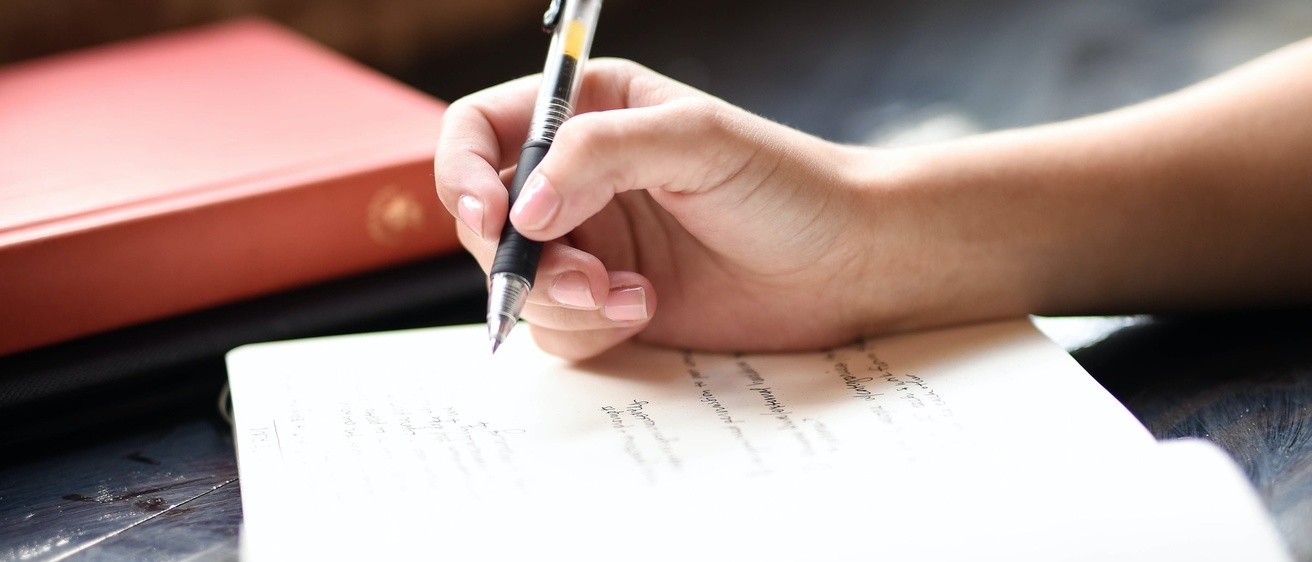The year I turned 8, I was mortified the day my mother found my notebook of poems hidden under the mattress of my bed. I was a shy child, an introvert who nurtured an overactive imagination and a prolific inner monologue that was manifested in the poems I wrote. I was so embarrassed that I stopped writing for the rest of that year. It was then that I realized how much my writing, particularly my poems, helped me to be aware of my deepest thoughts. Through my writing, I could be introspective and aware of what I really thought and experienced. Thankfully, I resumed.
Fast forward to the COVID-19 pandemic and its associated myriad challenges. I found myself at a crossroads, wondering if I had taken the right path by becoming a physician. I had long passed the stage where I could easily change careers. I had also passed the stage where I regularly wrote, having neither the time, mental bandwidth, nor desire to face my darkest thoughts. I constantly ruminated about my struggles and wondered whether it was me or if it was the work and the world that impacted how I felt. It was then that I returned to writing to help shed light on this dilemma.
Writing was my way of self-reflection; it was the self-reflection that raised my self-awareness and helped me to reconcile the eclectic aspects of my experiences. As a psychiatrist, I am constantly on the quest to learn more about myself and to help others understand themselves. I found that self-awareness, through reflection and introspection, is a powerful tool. Self-awareness is a journey, not a destination. It is a skill to be practiced. It can be a struggle, though not always a painful one. Organizational psychologists speak of “internal awareness”—our understanding of our values, passions, and aspirations—and “external awareness”—being aware of how others view us. This helpful article in the Harvard Business Review (2018) talks about both. I have also found this podcast on the same topic to be useful.
Our lives on campus offer us space for self-awareness. Here are some suggestions to consider in developing your practice of self-awareness:
■ Check in with yourself on a regular basis. Ask yourself, what about my life is working for my well-being? What is not working for my well-being?
■ Once you understand what helps you function optimally, learn to say “no” to things that are unhelpful or detrimental. Protect your time and mental space for commitments.
■ Know your values. Try to align your actions and pursuits to your values and not to arbitrary goals. This will help you parse down what you need to accomplish in a finite amount of time.
■ Engage with your loved ones. They can help you assess whether you are struggling or thriving and might have noticed when you are at your most content.
■ Engage with your work community. What are others’ viewpoints regarding the work environment? For shared concerns, brainstorm ideas together. Research shows that the act of getting together to talk about your concerns and passions can ameliorate burnout.
■ Ask for help from mentors and guidance counselors. They often have a wider perspective of our work lives and can help understand barriers between us and well-being.
Often, we are apprehensive of really reflecting because we fear the answers we may find. What if, after all your introspection, you find that life, or the work that you have chosen for it, is not perfect? That is a profound realization. Accepting that something is not ideal but that you can progress despite it or because of it is a key act of improving your well-being. The acts of introspection and subsequent self-awareness are key steps to identifying your limitations and thriving despite them.
I leave you with the poem that I wrote a few years ago when I was struggling with radical acceptance of my own. I hope you find that you are stronger than you think, and all the better for your struggles.
Not a Poem
This is not a poem.
But the broken shards of one.
Needling and numbing,
Just a few words left in juxtaposition.
This is not a poem.
Careful! The edges are sharp!
Glistening with poison,
The grief of the broken heart.
This is not a poem.
But the Japanese know of one.
Kintsukuroi*
Celebrating the undone.
This is not a poem.
But the renaissance of one.
This is not a poem,
But it is a beautiful one.
*Kintsukuroi – “to repair with gold”; the art of repairing pottery with gold or silver lacquer and understanding that the piece is more beautiful for having been broken.
Cover image by Hannah Olinger.
